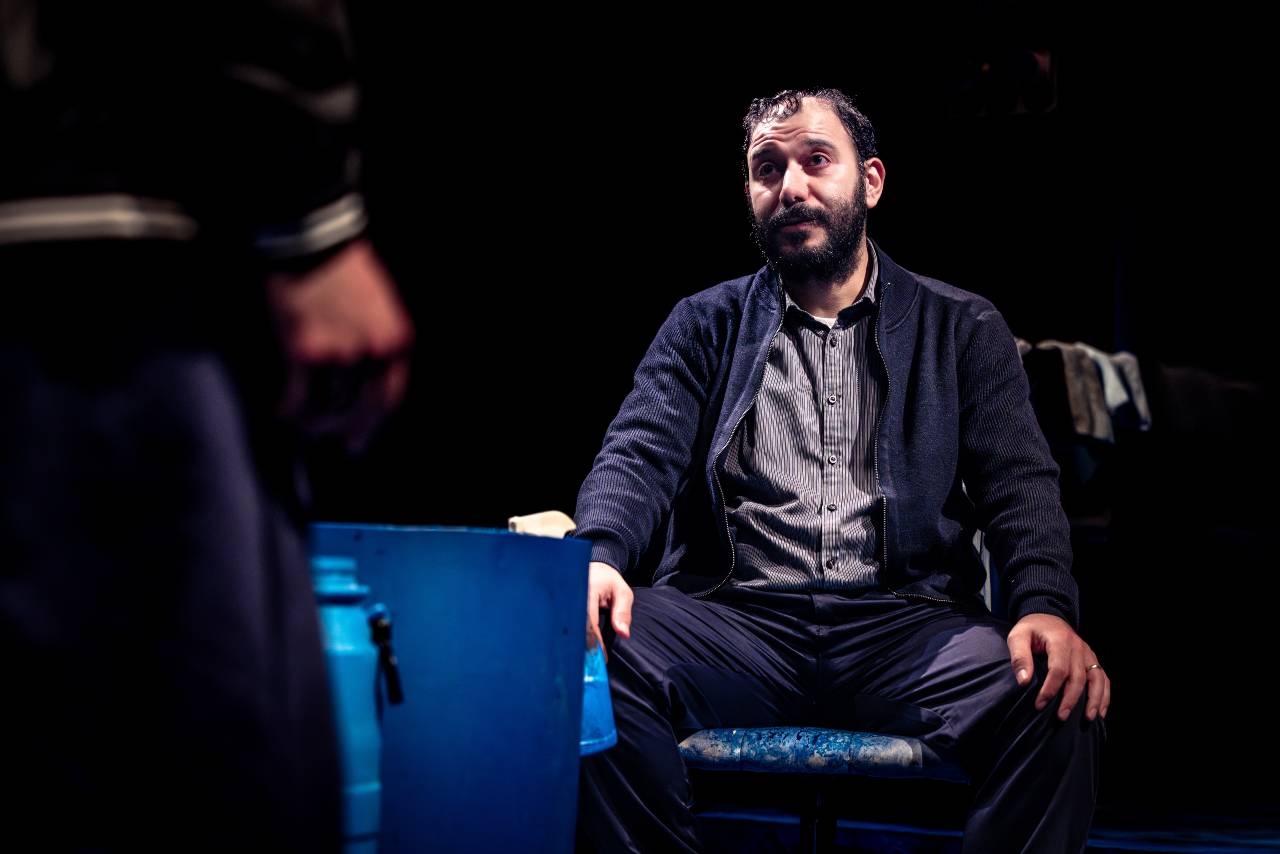We Speak Actors
Spotlight on Actor and Voice-Over Artist Mohsen Ghaffari

Mohsen Ghaffari has earned recognition in both theatre and voice-over work, most notably for his role in Phaedra at the National Theatre, directed by Simon Stone. In this production, he worked alongside a remarkable cast that included Janet McTeer, Assaad Bouab, Paul Chahidi, Mackenzie Davis, and John MacMillan. During the pandemic, Mohsen captivated audiences as Bottom and Egeus in the Australian Shakespeare Company’s A Midsummer Night’s Dream at Kew Gardens. A British-Iranian actor fluent in English, Farsi, and Dari, Mohsen skillfully performs across all three languages.
Mohsen, can you share how your acting career began?
I started out in Iran, performing in theatre productions. But when I moved to London in 2010, everything changed. I didn’t speak any English at the time, but I was determined to break into the UK theatre scene. I sent over 120 emails to various theatre companies and individuals, asking for an opportunity. Unsurprisingly, no one responded! Looking back, I don’t blame them—I had no idea what I’d written in those emails. My English was so poor that even I couldn’t understand what I was asking for! (laughs) But then, out of the blue, I heard back from the Almeida Theatre. They invited me to join their Young Friends of the Almeida programme. I was ecstatic.
“I attended countless workshops there, and for a while, the Almeida became my second home. I learned so much and I’m deeply grateful for that experience.”

Who were your early inspirations in acting?
Growing up in Iran, I was fascinated by Hollywood films. Actors like Marlon Brando, Al Pacino, and Robert De Niro were huge inspirations for me. But I was also motivated by those who discouraged me from pursuing acting—especially my parents. I remember a family friend, an actor and director himself, telling my father not to encourage me to become an actor. He said the industry was unstable and full of uncertainty. I remember thinking, If it’s not worth pursuing, why does he continue to work in it? (laughs) And here I am today, doing exactly what I love. I wouldn’t change it for the world.
What has been your most memorable project to date?
That’s a difficult question. I’ve truly enjoyed every project I’ve worked on, each offering its own unique experience. However, if I had to choose, I’d say last year’s production of Phaedra at the National Theatre stands out. “
“Working with Simon Stone and such a talented cast was an unforgettable experience.”
“Simon’s approach to theatre-making was transformative for me as an actor, and it’s an experience I will always hold dear.
Do you have any behind-the-scenes stories you can share?
During the pandemic, I performed in A Midsummer Night’s Dream at Kew Gardens with the Australian Shakespeare Company. It was an outdoor performance, and we had a small tent backstage for costume changes. One evening, while I was getting changed, a woman entered the tent and asked to speak with me. I had to laugh and say, “Let me finish dressing first!” (laughs) When I stepped out, she was in tears. She told me she hadn’t laughed in almost two years due to the pandemic and everything it brought with it. But my performance that evening made her laugh so much that it helped lift the emotional weight she’d been carrying. It was an incredibly touching moment that reminded me of the true power of theatre and why I do this work.
You’ve also worked in television. How does that compare to your stage work?
The main difference is in the scale of the performance. In theatre, everything—your voice, your movements—has to be bigger to reach the audience. But with TV and film, the camera does a lot of the work for you, so you can be more subtle. However, at the end of the day, whether it’s on stage or on screen, it’s all about storytelling. The medium may differ, but the essence of the work stays the same for me.
Featured photo credit: Jake Bush
We Speak Actors
Full-Figured Flings Teaser Nears 14K Views – Director of Photography Offers Special Father’s Day Release

Back 2 the Basics Production Management Group is proud to announce the official teaser premiere for FFF: Full-Figured Flings, a bold and unapologetic new film celebrating full-figured women and challenging the norms of beauty in Hollywood. Clocking in at just 46 seconds, the teaser doesn’t waste a moment, delivering a powerful visual and emotional punch that sets the tone for a project rooted in body positivity, size inclusivity, and cultural truth.
Premiering ahead of the 20th anniversary of Phat Girlz (2006), FFF serves as both homage and evolution. The film expands the conversation around colorism, sizeism, and shapeism, spotlighting women who have often been cast aside, sidelined, or silenced.

“This teaser is more than a preview—it’s a declaration,” said Lillie Mae Jones, creator and producer. “FFF is our love letter to the women who’ve never been centered but have always been essential. We’re not just telling stories—we’re shifting the lens.”
FFF: Full-Figured Flings is currently in development as a non-union independent production, with plans to release in 2026. The film invites audiences and allies to follow, support, and amplify the message through community engagement, open casting calls, and creative collaborations—including the launch of a nationwide call for a “Big Girl Anthem” to serve as the film’s official theme song.


Accept the Challenge…
The buzz is building fast around the highly anticipated full-figured fashion experience FFF, and now there’s a challenge on the table that fans won’t want to miss.
After racking up 11,000 views in less than 10 days, the official teaser video for FFF on YouTube is quickly gaining momentum. And now, the film’s Director of Photography, Dominique Perry, has thrown down a bold offer:
“If we hit 20,000 views before Saturday, June 14th, I’ll drop an exclusive second teaser on Father’s Day.”
This is more than a film—it’s a movement. FFF is a high-fashion, high-impact visual celebration of full-figured women taking a stand for representation, inclusion, and power on and off the runway.
Here’s how you can help make it happen: Watch the teaser now on YouTube. Like, comment, and subscribe. Share it with your community and post why YOU stand in solidarity with full-figured women
Watch here for a taste of the boldness, beauty, and energy
-

 We Speak Volleyball1 week ago
We Speak Volleyball1 week agoBuilt for the Pressure, Wired to Compete: Loretta Duby’s Passionate Pursuit of Purpose Through Volleyball
-

 We Speak Soccer5 days ago
We Speak Soccer5 days agoNo Entry Allowed: How Austin Fortner Is Becoming a Standout Keeper with Confidence and Control
-

 We Speak Football6 days ago
We Speak Football6 days agoFrom Snap to Touchdown: How Niah Reyes Plays the Game with Heart and Hustle
-

 We Speak Coaches7 days ago
We Speak Coaches7 days agoCoach of Culture, Heart of a Movement: The Extraordinary Journey of Daniel Moore, Pioneer of Women’s Flag Football and Builder of Young Lives













